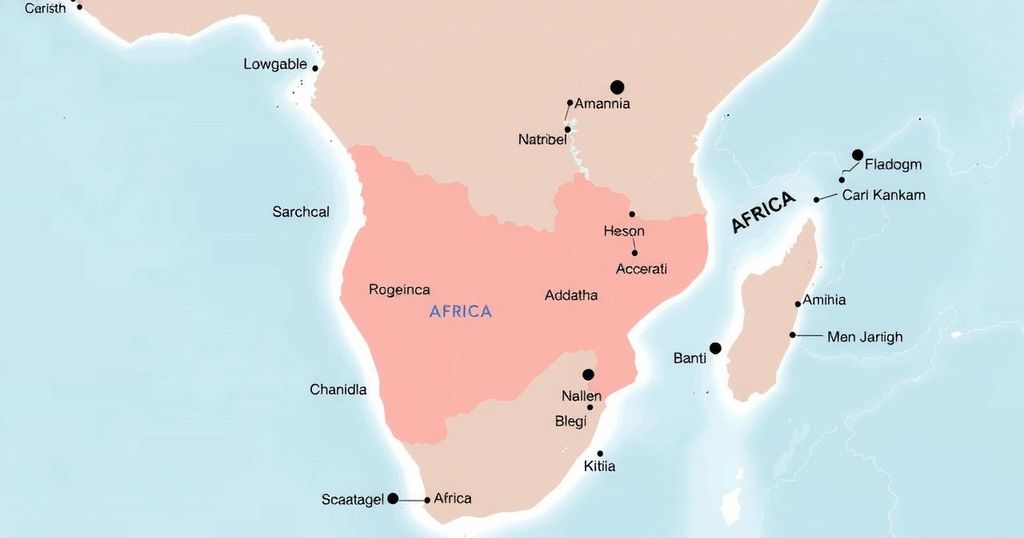Recent elections in Southern Africa reveal significant political shifts, particularly in South Africa, Botswana, and Mozambique, driven by discontent with established liberation parties. The ANC’s loss of majority control in South Africa, coupled with the opposition’s success in Botswana and ongoing unrest in Mozambique, indicates a growing demand for change. Namibia’s elections reaffirm the ruling party’s hold but highlight calls for reform, particularly among younger voters.
The evolution of political dynamics across Southern Africa in the wake of recent elections reveals a significant shift reflecting both discontent and aspirations for renewal. South Africa’s recent coalition government formation signals a critical juncture where the ruling African National Congress (ANC) has begun to lose its historical dominance, revealing fissures exacerbated by the dissatisfaction among various socio-economic groups. In Botswana, the opposition’s ascendance underscores a demand for political change amidst rising economic grievances, particularly concerning youth unemployment and economic mismanagement stemming from overreliance on diamond revenues.
Conversely, Mozambique’s political landscape continues to be dominated by the Frente de Libertação de Moçambique (Frelimo), which faces rising calls for reform amid accusations of electoral fraud and violence. The situation in Namibia further illustrates the complexities at play; while the ruling party SWAPO continues its reign, the nomination of a female candidate for the presidency offers a seemingly progressive element against a backdrop of persistent social inequality and voter disenchantment. This ongoing political evolution across the region encapsulates a growing demand for accountability and responsiveness from established liberation movements that have struggled to adapt to the needs of a changing electorate.
These developments across different countries in Southern Africa illuminate a wider regional trend where aging political frameworks stemming from liberation struggles encounter pressures for transformation from new generations demanding solutions to pressing socio-economic issues. By capturing the essence of these recent elections, one can better understand the multifaceted challenges and opportunities facing Southern Africa today.
The political landscape of Southern Africa is significantly influenced by its historical movements for liberation, primarily led by former liberation parties like the African National Congress (ANC) in South Africa, Frente de Libertação de Moçambique (Frelimo) in Mozambique, and the South West Africa People’s Organisation (SWAPO) in Namibia. The recent elections in South Africa, Botswana, Mozambique, and Namibia indicate potential transformations driven by public desire for political renewal, economic reform, and increased representation of the youth demographic. As these countries navigate their post-liberation realities, the political continuity observed in some instances contrasts with the aspirations for change echoed by newly emergent opposition movements and shifting voter sentiments.
In conclusion, the electoral outcomes in Southern Africa are symptomatic of a broader societal demand for change and accountability from long-established political entities. As political landscapes shift, former liberation movements face the urgent need to respond to the socio-economic realities confronting their electorates, particularly among younger demographics. The implications for governance, social justice, and economic stability are profound, suggesting that continued adherence to past successes may no longer suffice for political longevity in the region’s evolving political context.
Original Source: www.fairobserver.com






